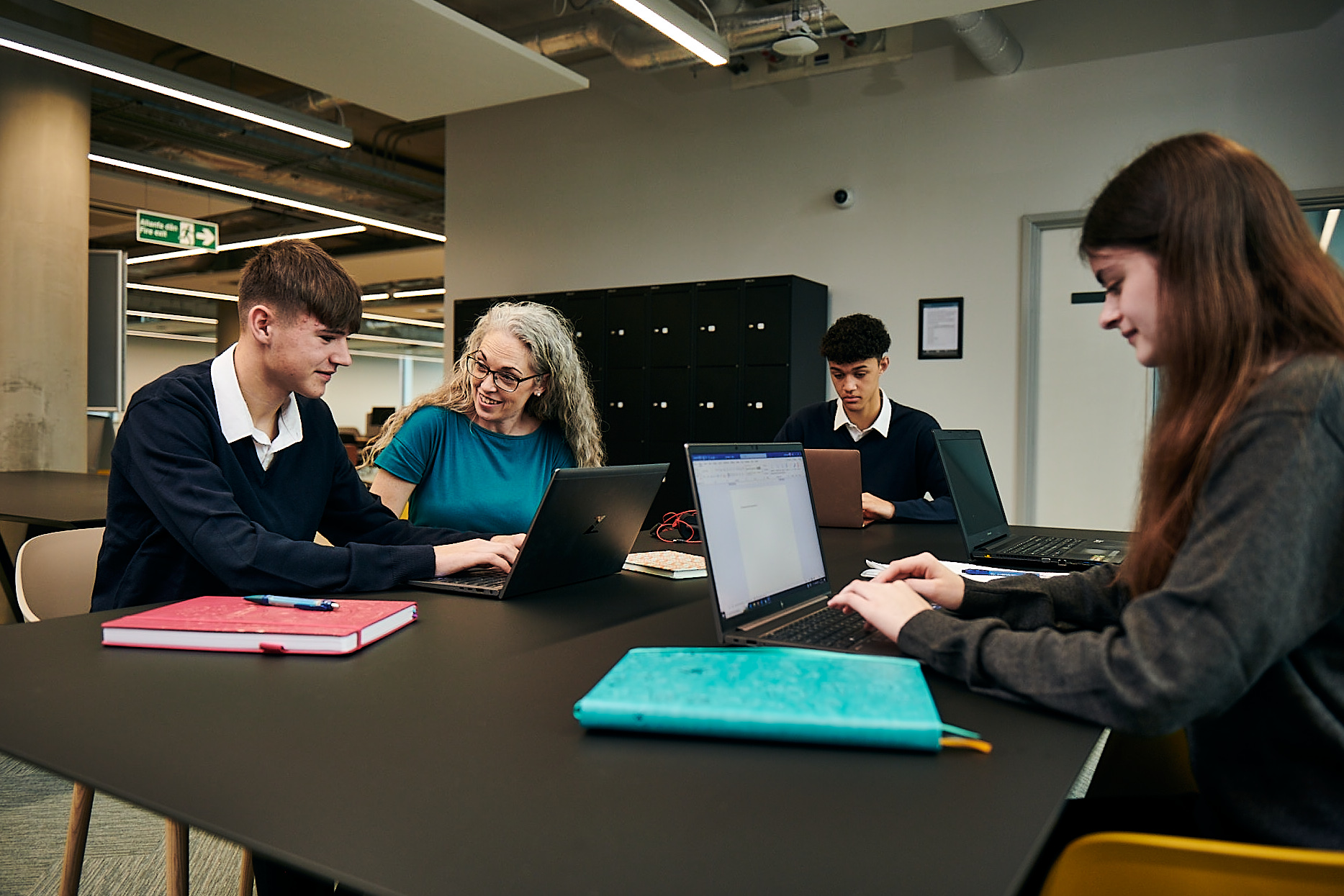What is early intervention?

Spotting classroom disengagement is crucial in ensuring that every pupil thrives. But, once you’ve identified a student who’s struggling in the classroom, what’s the next step?
For many young people, the key is early intervention. Early intervention services provide the critical support your pupils need to re-engage and stay on track with their learning progress. Here’s everything you need to know about what these services offer, when to use them, and how to choose the right provision for your students.
What is early intervention?
Early intervention is a specialised support service to help students who may have started showing signs of disengagement with education to reengage with their learning. Early signs can be a lack of participation and engagement, poor attendance, or disruptive behaviour at school. Early intervention is in addition to the support schools may already offer their students. It’s about engaging external experts to provide a dedicated service to students who need it.
There are a variety of reasons why students may be facing challenges in keeping engaged and motivated at school, from personal, mental, or physical difficulties to family circumstances that take their attention away from class. Regardless of your pupils’ reasons, early intervention services provide extra educational and wellbeing support when students need it the most, preventing them from fully missing out on their education or suffering significant learning gaps.
When do students need early intervention?
The right time to consider early intervention is the moment you or your staff notice signs of disengagement at school or identifies a vulnerable student. A valuable option to ensure that students keep on track with their learning, these services are designed to prevent any issues your students are facing from escalating.
The signs to look out for could include a lack of responsiveness and participation in class, any unusual behaviour the student is displaying, or a diminished effort in homework and school activities.
Much like the name suggests, early intervention is specifically designed for early stages of disengagement, so it’s best to not to wait too long to use them. The quicker you act, the quicker your students can get back on track, so it’s always worth setting up a conversation with the pupil and their family to discuss the signs and present options that could be of support.
“Being able to intervene early when a child begins to struggle is crucial to helping them to regain confidence, focus or a feeling of success. Recognising the signs early is key, but so is then being able to put in place support which allows issues to not get any worse,” Alessandro Capozzi, Headteacher at Academy21
What to look for in early intervention
Not all early intervention services are equal, so it’s important to carefully weigh the strengths of the options available to you to find the best support.
1. Level of support
The most important factor to look for in early intervention is the level of support providers can offer. For example, at Academy21, aside from our DfE-accredited curriculum, we offer personalised student support from the moment schools, local authorities, MATs, or PRUs engage with us. It’s crucial that your provider considers the individual needs of the student to ensure that whatever challenges they are facing can be resolved in a truly inclusive and supportive environment.
2. Flexibility in class schedule and location
It’s also important to look for flexibility in these services, especially as most students accessing early intervention are still enrolled in their mainstream school and taking classes in a physical environment. Academy21’s early intervention services offer complete flexibility in class scheduling so that students can easily fit our online classes into their school timetable or around external commitments. Students can access Academy21 provision from any location that’s most convenient and comfortable, whether that’s on your school site or at home.
3. Adaptability of services
Ideally, it’s often best to take a staged approach to your students’ intervention and reintegration. For instance, you may want to start by enrolling your student in a few classes that they can attend from home. As they progress and start to reengage with their education, improving their participation and attendance, it may be best for the student to move on to taking some of these classes in their physical school environment. A service that’s able to gradually increase the time students spend at school is a great way to build students up to a full return to the mainstream classroom as smoothly as possible.
4. A broad curriculum
Lastly, given that early intervention services still form a crucial part of a student’s education journey, it’s important that the provider you choose offers a consistent education through a broad and balanced curriculum in line with UK national specifications. This ensures that students continue to build a solid understanding of all core subjects and work towards strong outcomes, even when they’re not in the classroom. Make sure you review the courses each provider offers; academic and pastoral support courses like those at Academy21 can be a great bonus if your student is struggling with learning and needs to develop their confidence.
Considering online alternative provision for early intervention
Online alternative provision is rapidly growing in popularity as an early intervention choice for a wide variety of reasons — in particular, because of the flexibility and adaptability it offers in providing students with dedicated support while keeping them connected to their school environment.
Academy21 is the UK’s leading online alternative provision, and it may be the best option to get your students making educational progress again. At Academy21, you can enrol new students within 48 hours, making it the ideal solution to intervene as soon as you notice a child struggling.
Our live, interactive classes then give students the opportunity to engage with their teachers and fellow classmates during lessons. At the same time, Academy21 also affords students an experience tailored to their needs: if pupils don’t yet feel comfortable speaking up in class, there are ways to participate without using a camera or microphone.
Our expert teachers are experienced and trained in supporting students with a diverse set of needs, adapting their teaching methods to ensure every pupil feels comfortable and makes strong progress. With teacher feedback and continuous support, students are also guided to gradually rebuild their confidence and motivation to engage in school.
“Online AP is easy to use and fully adaptive. Students build the relationships and habits that help them overcome challenges, ready to reintegrate or transition onto another placement. It works for thousands of students every year,” Alessandro shares.
Our promise at Academy21
Academy21 offers a fully adaptive and flexible early intervention service for schools, local authorities, MATs, and PRUs. Working to our DfE-accredited curriculum, our teachers and staff work tirelessly to ensure that each student who joins us receives the support they need for their specific challenges. “Support can be put in place right away and a student does not have to miss any education, enrolling immediately in live lessons delivered by qualified, enthusiastic teachers,” shares Alessandro Capozzi.
Through innovative tech and easy-to-navigate platforms, students can access all they need to continue their education with us. Likewise, all mentors have access to a dedicated portal with key feedback, reports, and progress monitoring.
If you are interested in exploring our early intervention services or any other bespoke solution for your students, contact our friendly team below or visit our early intervention page.


